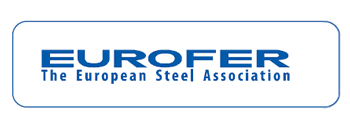Brussels, 3 October 2017 – The European Steel Association (EUROFER) notes that agreement between the EU institutions on the new ‘non-standard’ anti-dumping methodology was reached today. The methodology will be used against dumping from countries whose domestic markets are afflicted by significant distortions.

“This agreement is important to ensure that European businesses are shielded sufficiently from dumping from countries that significantly distort markets”, said Axel Eggert, Director General of EUROFER. “We expect the Commission to now demonstrate the workability and predictability of the implementation of this new methodology”.
The creation of a new way of calculating dumping from countries with significant distortions arose from the EU’s move away from having a specific list of ‘non-market’ economies for which a ‘non-standard’ methodology automatically applied. The use of such a methodology means that the EU can take undistorted costs – for example, of raw materials and energy – from another market and apply them in the calculation of the dumping margin of the exporting country.
“European industry needs a coherent trading environment, and as dumping undermines our economic viability, it is more important than ever that the EU can combat this scourge in a quick, effective and predictable way. Once the new methodology has been agreed by the EU, it must actually work in defending European jobs and industry against dumping from countries with significant distortions – as the US’ approach does. Meanwhile, EU policy makers must reach agreement at their forthcoming meeting on the TDI modernisation file in order for the EU to have a complete trade defence package put forward to the European Parliament and the Council”, concluded Mr Eggert.
About the European Steel Association (EUROFER)
EUROFER is located in Brussels and was founded in 1976. It represents the entirety of steel production in the European Union. EUROFER members are steel companies and national steel federations throughout the EU. The major steel companies and national steel federations in Switzerland and Turkey are associate members.
About the European steel industry
The European steel industry is a world leader in innovation and environmental sustainability. It has a turnover of around €170 billion and directly employs 320,000 highly-skilled people, producing on average 170 million tonnes of steel per year. More than 500 steel production sites across 22 EU Member States provide direct and indirect employment to millions more European citizens. Closely integrated with Europe’s manufacturing and construction industries, steel is the backbone for development, growth and employment in Europe.
Steel is the most versatile industrial material in the world. The thousands of different grades and types of steel developed by the industry make the modern world possible. Steel is 100% recyclable and therefore is a fundamental part of the circular economy. As a basic engineering material, steel is also an essential factor in the development and deployment of innovative, CO2-mitigating technologies, improving resource efficiency and fostering sustainable development in Europe.
